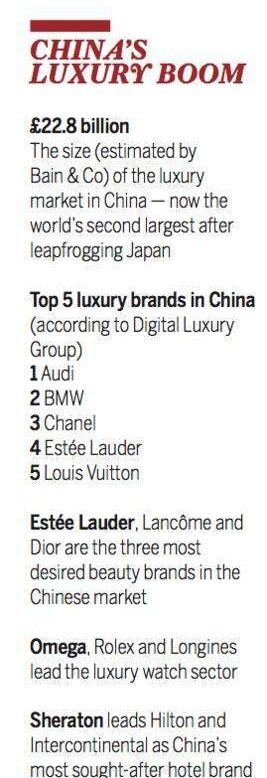

MORE THAN 1,500 years ago, China’s political hierarchy had already identified the role that concubines could play. The Jin dynasty (265-420) developed fifteen ranks for courtesans, from ‘Honoured Imperial Concubine’ to ‘Average Talented Lady’.
There was no shame in a girl entering the Imperial Palace and performing this role. On the contrary, it was a great privilege and one which brought honour on the family. One need look no further than one of China’s Four Great Classics, Dream of the Red Chamber, where three generations of the Jia family — said to be based on author Cao Xueqin’s own family — are supported by one favourite concubine of the Emperor.
Concubines lived in safety, guarded by eunuchs, and could rise to great prominence. The Dowager Empress Cixi (1835-1908) began life as a concubine to the Emperor Xianfeng, gave birth to an illegimate (yet sole) heir who became the Tongzhi Emperor, and was, upon his death, the de facto ruler of the Manchu Qing dynasty in China for 47 years.
Read more on China and luxury brands from Spear’s
Nowadays in China they are not called concubines but rather xiao san — ‘little third’ — a demeaning term used as the girl is usually much younger than her patron and treated as if of minor importance. No longer is the role of xiao san a respected one — brushed under the carpet, they are treated more like prostitutes, without any status. But now, as the Chinese get significantly wealthier, often through political corruption, luxury brands are reaping the rewards as HNWs indulge their mistresses.
In August, 26-year-old TV host Ji Yingnan exposed her relationship with the married deputy director of the State Archives, Fan Yue. Overnight the internet was awash with photos depicting their lavish lifestyle — Hermès bags, Rolex watches and clothes from Dior, DVF, Prada and so on. Another case in August was the sacking of Wang Suyi, who headed the United Front Work Department in Inner Mongolia, after his mistresses reported him to the media.
Both incidents came after Chinese president Xi Jinping made a now famous speech calling for a vigorous campaign to catch corruption at all levels, the ‘tigers and flies’. Since then, 2,290 officials have been disciplined, but these officials sit more at the fly’s level than the tiger’s.
Modern love
Adultery is still all the rage in China, but technology is making it ever easier to have — and to expose — affairs. In Hong Kong, a dating website geared towards infidelity clocked up 12,000 new members and 320,000 unique hits from local users within its first week of operation. CEO Noel Biderman describes his Ashley Madison site as the ‘intelligent choice’ for people looking to conduct affairs.
The site claims 21 million members across 30 countries, but not in mainland China, where the internet control would never permit such activity. Over in the mainland, meanwhile, mistresses can use the internet to blackmail and expose their corrupt lovers, which means their men are all the more eager to appease them.
While you wouldn’t claim blackmailing mistresses are exclusively driving luxury goods consumption in China, the sector is nonetheless booming. Italian retailer Fingen Group plans to open designer outlet centres in China stuffed to the brim with Ferragamo, Gucci, Bottega Veneta, Burberry and Prada, which will cater for the newly wealthy, their families — and their secret lovers. A similar outlet in Guangzhou will cover an area of 50,000sq m, with an equally large one in Shanghai.
Vocal minority
I met a xiao san, whom I’ll call Ling Ling, in a KTV (karaoke) bar in the border city of Shenzhen, its proximity to Hong Kong a reason itself for young beauties to venture there. While searching for a rich man they sing in the bars with businessmen — always on the look-out.
Their efforts may well be rewarded: China now has more than a million millionaires — 50 per cent are private business owners, 15 per cent professional stock-market investors, 15 per cent real estate investors and 20 per cent top-salaried executives. According to the Hurun Report, this is increasing at an annual rate of 2 per cent.
Their average age is 38, while 70 per cent of them are male and own three cars and four watches. Beijing, Shanghai and Guangdong alone are home to around 500,000 millionaires between them, including 30,000 UHNWs. Of course this is just the known wealth — double the number are estimated to prefer to remain out of the limelight.
Ling Ling met me the next day in the lobby of a downtown hotel, clutching a Louis Vuitton bag and wearing Gucci shoes and Prada sunglasses (no surprise there). ‘So, how did you end up here singing every day?’ I asked her.
‘I come from a small town in the north. There are no opportunities for me there and the salaries are so low I would be an old woman before I could buy a house for myself. So some friends and I decided to come here. It’s not a bad place but I must work very long hours.’
‘How did you met your… friend?’ (I wasn’t sure which word to use; we had established the night before that the gifts were from a ‘boyfriend’, and it was pretty clear to me from the infrequency of their meetings that he was married.) ‘It doesn’t matter how, but he says he loves me and we can get married next year.’

I brought up the cases of Wan Suyi and Fan Yue. Were they victims of their own bad intentions? ‘You have to feel sorry for us, we are promised the world and given nothing. Just like dolls we put on make-up to look pretty, hang off the arm like some trophy, only to be lied to and cheated and left out in the cold. I’m glad they post these pictures of them — maybe they will change their ways and treat us better.’
She told me she only continued to work at the KTV because she knew her lover could disappear at any moment. Her phone rang — him, presumably — but she declined the call, placing it on the table next to a set of BMW keys that I later saw belonged to the stretched version of its 3-series. BMW’s monthly sales in China rose by 39 per cent to 32,194 in July; China is forecast to surpass the US as its top market.
Audi remains the best-selling premium brand in China and is on track to hit its phenomenal 2013 target of 450,000 vehicles. Bentley is also doing well, selling 438 cars in the first quarter. The global financial crisis has of course taken its toll, but with an economy growing at more than 6.5 per cent, a true slowdown is unlikely. Again, you can’t credit mistresses with all this, but anecdotes from executives in these firms suggest they are not playing a negligible part.
Clean-up
Still, the one thing that can put the brake on this conspicuous (yet covert) consumption is political pressure. China has embarked on a crackdown on corruption in the state-dominated sectors of the economy, whose key figures have grown wealthy beyond right.
But until the government takes down these sectors’ leaders, such ‘patrons’ can continue to embezzle and spend, sending the numbers of handbags, watches and diamonds bought ever upward to the satisfaction of the fashion houses. But to those tigers and flies out there, be warned: you’re only a click and a pic away from it all crashing down.






